Visionquest: The Band is Back Together
The story behind the reunion.
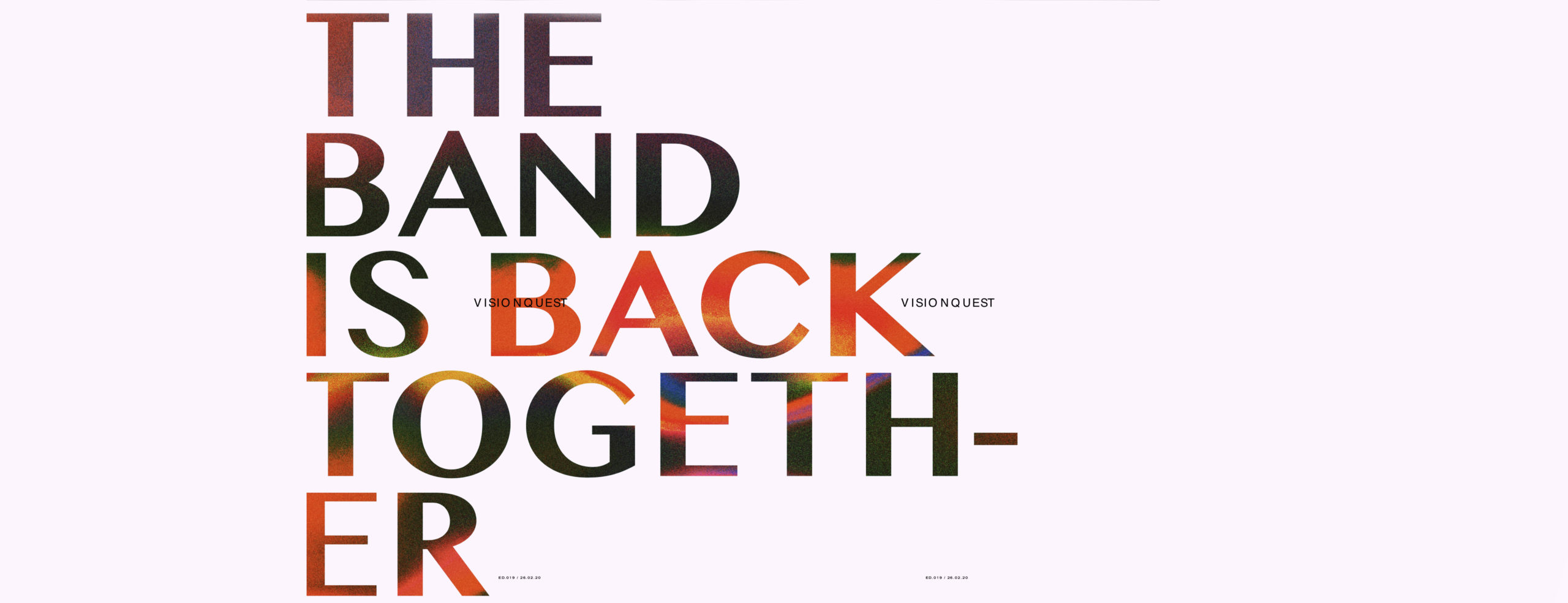
Visionquest: The Band is Back Together
The story behind the reunion.
Editor note: All images are taken from the zine to accompany the 19th edition of XLR8R+, a special Visionquest edition featuring tracks and content from Shaun Reeves, Ryan Crosson, Lee Curtiss, and Seth Troxler, plus a Studio Essentials with Visionquest artists Triptease. You can find more information on the package here.
On August 18, 2010, Seth Troxler, Ryan Crosson, Lee Curtiss, and Shaun Reeves stepped up in the front room of Ibiza’s DC10, joined by Bill Patrick. The Wednesday party was a special event because it marked the first time all four, each an admired DJ in their own right, had come together as Visionquest, the name a reference to an ancient Native American ritual whereby children on the verge of adulthood undertake a journey through the wilderness in search of a spiritual epiphany. It was a metaphor for what they wanted their listeners to experience on the dancefloor. Playing deep into the early hours, they delivered the first of many Visionquest all-night-long multi-deck DJ performances, spanning genres and with it conceiving what became one of electronic music’s most celebrated collectives.
Nearly 10 years have passed since that evening, and the Visionquest of today is an entirely different beast to what it quickly became. Through the early part of the decade, the Visionquest quartet donned magazine covers, headlined events, and delivered sought-after remixes for the likes of Dinky [“Acid in my Fridge“], David Lynch, and Tracey Thorn. As the dance music landscape became clinical and overly functional, Visionquest guaranteed you fun and character, and so it remained before they stripped back operations in January 2014, as Troxler opted to fly his own flag. After a period of readjustment, Crosson, Reeves, and Curtiss continued with the label, and they remained a touring force until mid-2015, but Visionquest performances have since all but stopped.
That is until now. Beginning this summer, and to celebrate the label’s 10-year anniversary, Troxler, Crosson, Curtiss, and Reeves will reunite to embark on Visionquest’s second chapter, aiming to continue where they left it. Proceedings will begin with a series of 10-Year parties, with dates to be announced, after which they’ll ramp up operations with Visionquest sets and the label. Troxler, now based in Ibiza, will shut down his other labels to focus on Visionquest and he’ll join the others in committing time to touring as a four. After six years, the band is back together.
Visionquest’s roots lie in Detroit, Michigan, where they all connected. Troxler, a roommate of Curtiss, met Crosson through Memories & Melodies, one of his home town’s most beloved record stores where he’d been working since the age of 14. Curtiss met Troxler through a release he did on a small West Michigan label and the two had grown to become close friends.
Reeves, then a promoter, connected with them all through the local party scene and they united through an easy-going attitude and appreciation for wonderfully weird electronic music. They deepened their friendship in Curtiss’ and Troxler’s basement, “Tesh Club,” where they’d consume various means of mind expansion, throw parties, and upload the sets online.
One such source of this music was Perlon, the cult label of Thomas Franzmann (a.k.a Zip) and Markus Nikolai centered around the Get Perlonized parties at Berlin’s Panorama Bar. Endeared by the German capital’s stripped-back techno sound, Reeves made the move in 2003, aged 22, aiming to dig into the music that underpinned the Visionquest group. He maintained close ties to the others, who’d visit more regularly as they began releasing on European labels, and they eventually made the move together in June 2007.
Little could have prepared them for the next few years. Living together in a rented apartment on Frankfurter Allee, one of the oldest roads in the city and easy walking distance from Club der Visionaere, they established themselves as staples in the bustling community of artists that surrounds the club by the Spree. Eager to imprint their vision, in 2008 they launched their Soulshower residency, presenting soul, funk, hip-hop, and just about anything else they could find. The slot proved a success, distinguishable among a local soundtrack dominated by functional house and techno.
“We absolutely wanted to make electronic music a little more light-hearted and fun, at least as personalities,” Curtiss recalls. “There were very few DJs playing records with house vibes, and there weren’t vocals unless they were pitched unnecessarily low. We all appreciated house music as much as techno, and we brought a little more funk and American influence with our sets.”
Word spread and so did Visionquest nights, taking the crew all across the United States and Europe. In 2010, they formalized the Visionquest name and refined their motivations: firstly to have fun and create experiences through parties, but they also had one eye on growing an artistic legacy. In this pursuit, they launched the Visionquest label, releasing the music of friends in their orbit.
With demand high and responsibilities low, hedonism ruled the day, and it remained that way until later that year when Troxler and Crosson moved to London. By this point, Curtiss had already returned to Detroit. Reeves remained in Berlin but later moved to Ibiza to be with his then-girlfriend.
In different cities, pressures grew and priorities shifted meaning Visionquest’s momentum slowed. With an expensive management team installed, the label was forced to maintain an intense release schedule, and this often meant they had to compromise on quality. “It becomes less fun when it’s necessary to pump out music to maintain the business more than the aesthetic,” Reeves says. They put out 12 records in 2012 and 16 the year after. As the industry expanded through the early part of the decade, it all became more business-focused, much to the frustration of the crew. “We had ridden the initial wave and then everything became very business, even with the promoters,” Reeves recalls. “The business took over the fun, and it felt like a job.”
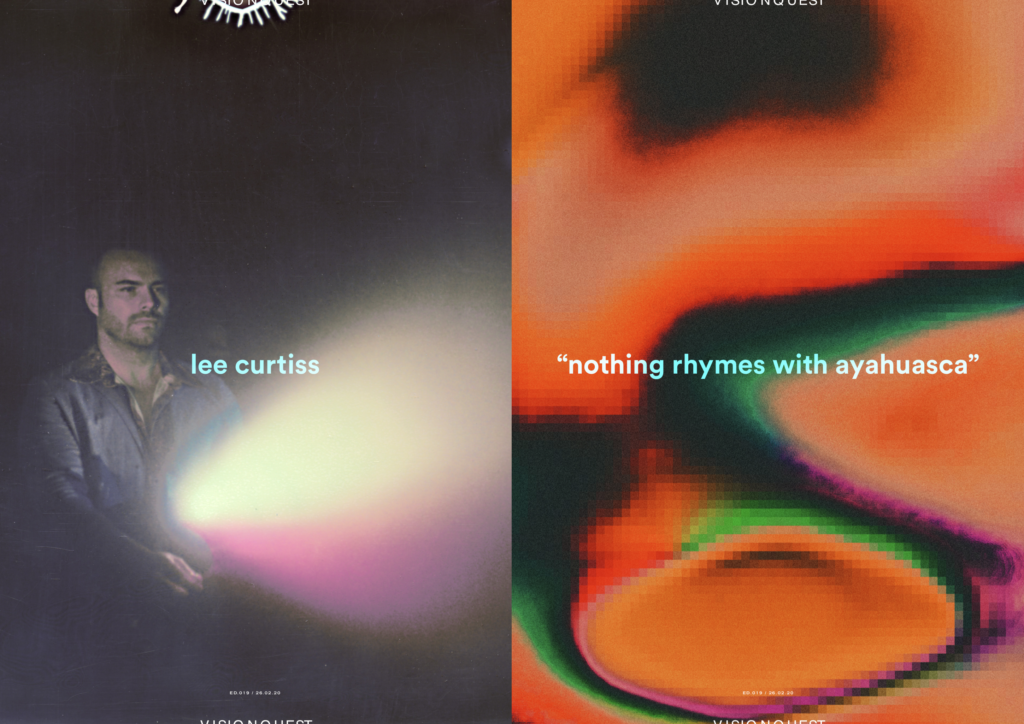
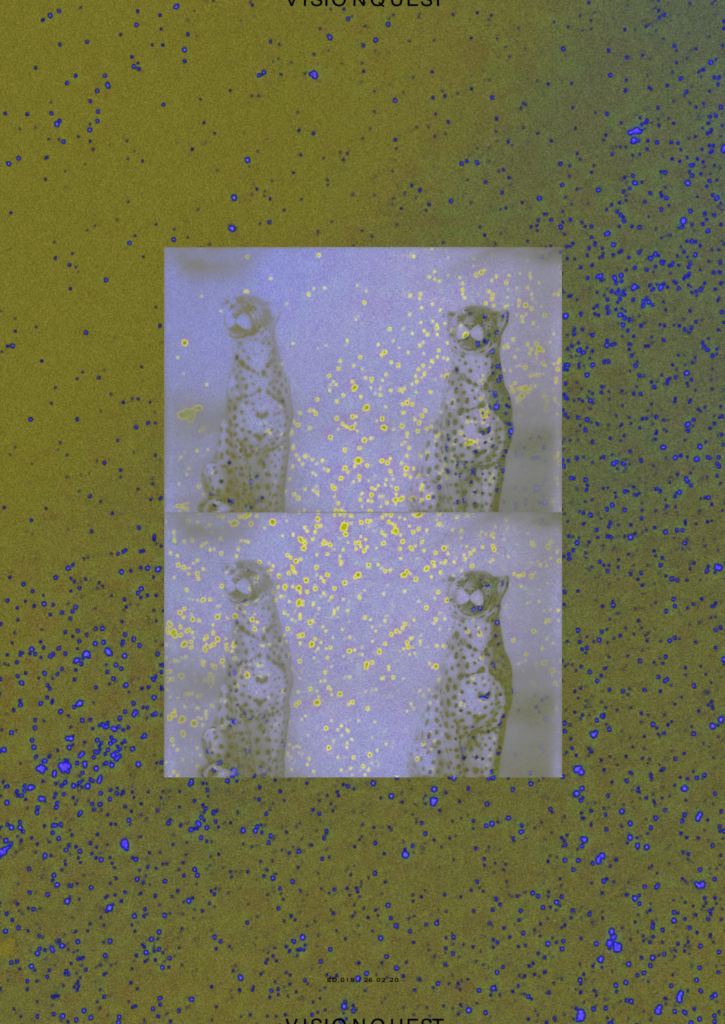
“We were pushed from all angles to be the next big thing, which is a strange position for a group of strange men who love weird and deep music.”
— Lee Curtiss
“We were pushed from all angles to be the next big thing, which is a strange position for a group of strange men who love weird and deep music,” Curtiss reflects. For their 2013 world tour, they were equipped with a LED artwork team to transform clubs and festival stages, and there were also hired actors dressed in fancy dress planted in the crowd to break into synchronized dance routines.
“Conceptually, it was great, but it was a lot to throw at a group that had never even done an actual world tour together before. This created unneeded stress and friction between everyone involved and took its toll on the four of us,” Curtiss adds.
Troxler, meanwhile, was by then one of the world’s most demanded DJs and this challenged the group dynamic. “He felt he was getting all the attention and this made it difficult,” Reeves recalls. Exacerbating the issue was a sense among the others that they were pigeonholed to the group: “Everyone knew our names but nobody knew what we each were individually, which is a weird position to be as an artist,” Reeves adds. “All of us were bothered by this, and we wanted to establish our own identities.”
And so, after the Visionquest13 world tour, Troxler stepped back to focus on his solo work, leaving the others to continue on touring, until they stopped themselves in 2015. The label, meanwhile, continued on, managed by Crosson and Reeves. “It was a conscious decision to save the friendship, which has always been the most important thing between us,” Crosson says.
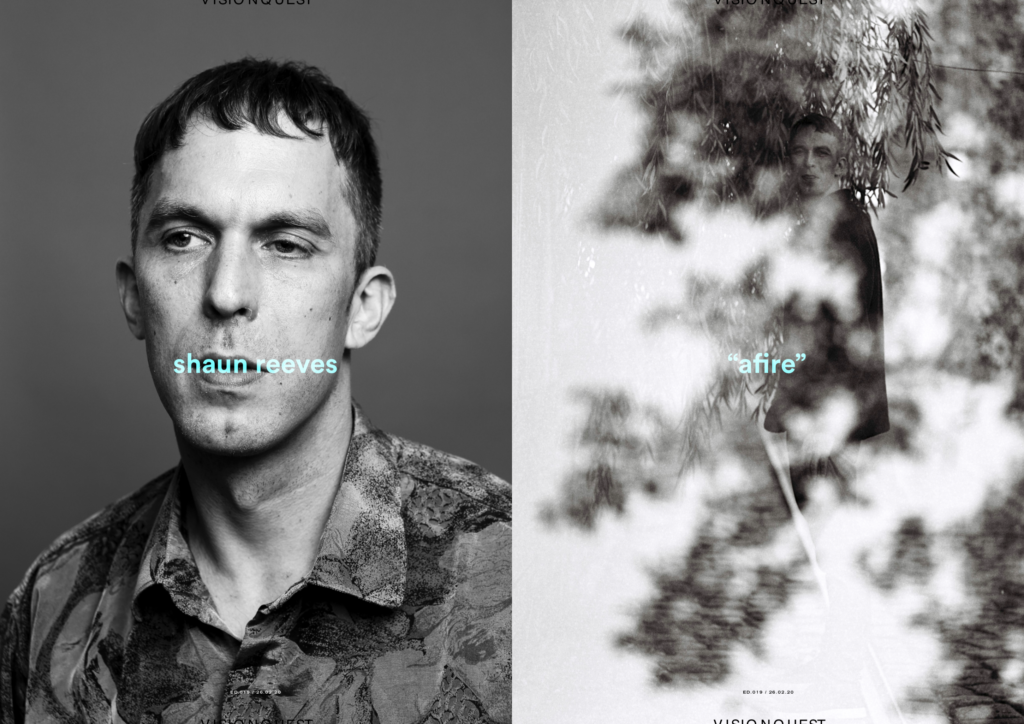
Rumors of Visionquest’s impending reunion have been circulating for months, but they’ve been moving between the four for years. Underpinning these conversations has been a sense of nostalgia, but also a friendship that dates back to their earliest musical memories and endured the most fun and care-free periods of their lives. “We miss each other,” Curtiss quips. Beyond this, however, there’s also a sense of unfinished business; as if their story was cut short, they lost sight of their original mission, and that they could do it differently now.
“It all happened too fast. From playing small promoter parties across Europe to a special collection of people who really understand it, to being part of the mega festival scene. All this seemed to explode in such a short amount of time. It was amazing but it all evolved too quickly.”
— Shaun Reeves
“It all happened too fast,” Reeves reflects from his Berlin apartment. “From playing small promoter parties across Europe to a special collection of people who really understand it, to being part of the mega festival scene. All this seemed to explode in such a short amount of time. It was amazing but it all evolved too quickly.”
He adds: “At a time when we should have had more control over things artistically and business-wise, we actually didn’t. We learned a lot about what can happen if you’re not on top of your own shit all of the time.”
Momentum picked up in the summer of 2016 when Crosson returned to Berlin to play at Club der Visionaere with Reeves, and Troxler, booked nearby, headed down afterward. What ensued was a 30-hour “burner session,” Crosson adds, that rekindled memories of the group’s finest days in the German capital and they called Curtiss in Los Angeles vowing to kick-start the project again.
“I was not there, but it’s really weird because we’ve always had this bizarre psychic ability and I texted it [the idea of a reunion] to Shaun,” Curtiss recalls. At Movement Detroit in May the following year, when Visionquest’s Need I Say More event, held at the legendary Detroit venue Old Miami since 2006, was canceled, Crosson, Curtiss, and Troxler decided that the time was right, and they connected with Reeves and began their initial contact with promoters.
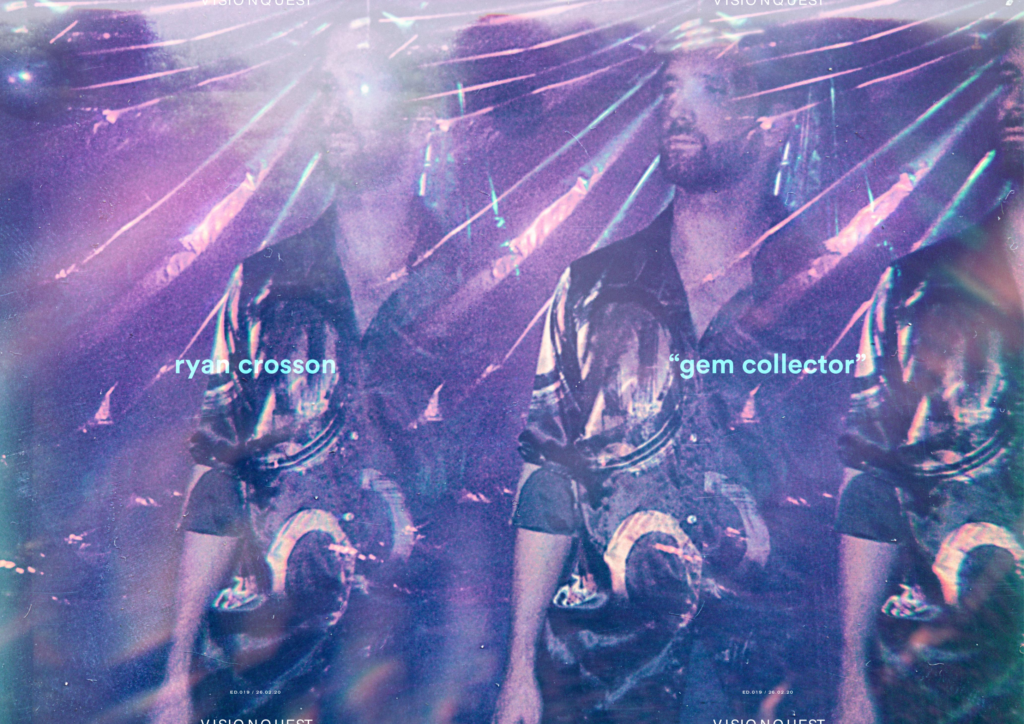
The label’s 10-year anniversary, a landmark in a journey that began with Benoit & Sergio, the first of around 100 releases, serves as the platform they need to really make it happen. But beyond that, there’s a feeling among the crew that each member is in the right place in their individual lives and careers for Visionquest to be more of a success this second time around. All four are much more settled personally, two are even married, and they have nearly a decade more worth of experience in DJing and producing under their belts.
“It’s a matter of being older and now understanding how long it takes to actually be a really good DJ, and wishing that attention was coming now rather than when the pressure from the hype caused a few questionable decisions at key points,” Reeves continues.
Troxler, the hardest to pin down, is also ready to commit his energies to the project, recognizing that there is little left for him to accomplish in electronic music. “Back then I was trying to be something, but now I just want to be a good DJ and to create a good legacy, and to enjoy myself with my friends,” he explains. “I just miss the old gang.”
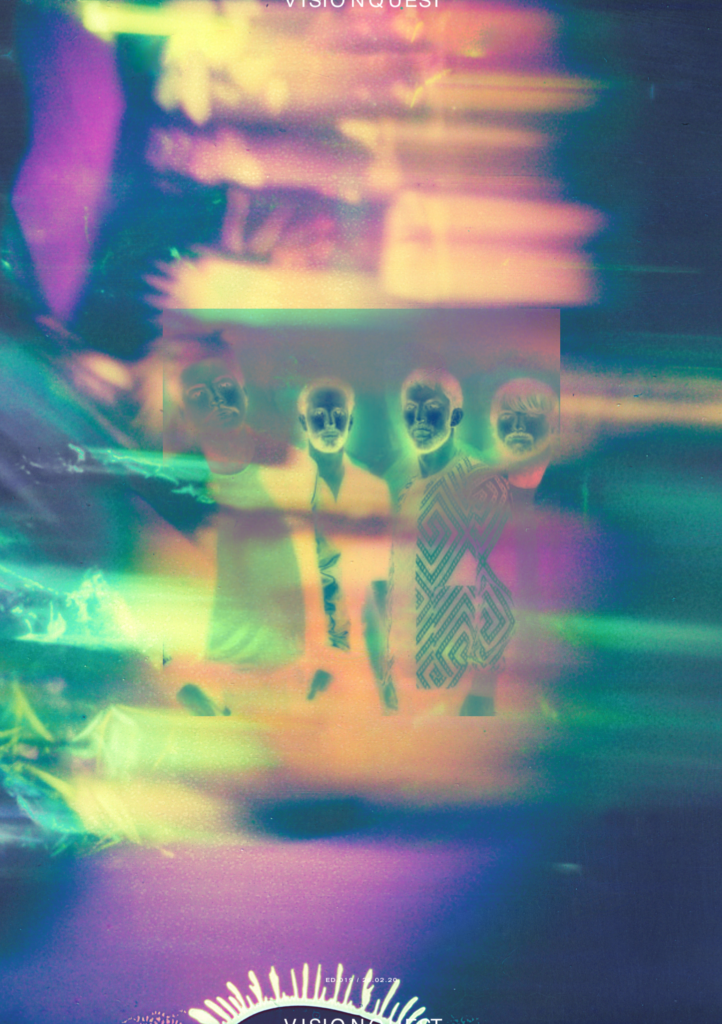
Part of Troxler’s craving derives from a disillusionment with an electronic music landscape that he feels has become overly serious, pretentious, and career-driven, and this creates the perfect backdrop for Visionquest to deliver. Parallels, he feels, can be drawn with how Visionquest stood out in 2008 against a backdrop of overly functional music.
Visionquest began as a “bunch of freaks playing freaky music,” he explains, “looking to expand people’s minds,” and by going back to these roots, Troxler believes that the crew can deliver the fun that electronic music is calling out for. “We just want to throw some cool parties and be weird. We’re all very liberal and politically correct people, but at some point, you’ve got to have some fun,” he explains.
“There is a cyclical pattern in the way the scene evolves and we may now be at a similar point where the timing is right for our sound to be something advanced and necessarily interesting….I think there’s more of a possibility to open people’s minds now because they’re looking for something fresh.”
— Shaun Reeves
Mirroring Troxler’s comments, Reeves points out that the music he’s hearing has become too predictable, which is reflected in the events, and that it’s plateaued after a period of evolution. “There is a cyclical pattern in the way the scene evolves and we may now be at a similar point where the timing is right for our sound to be something advanced and necessarily interesting,” he continues. “If we had tried to blow things up five years ago, we’d have had to fit into something else that was going on, like a different sound, and I think there’s more of a possibility to open people’s minds now because they’re looking for something fresh.”
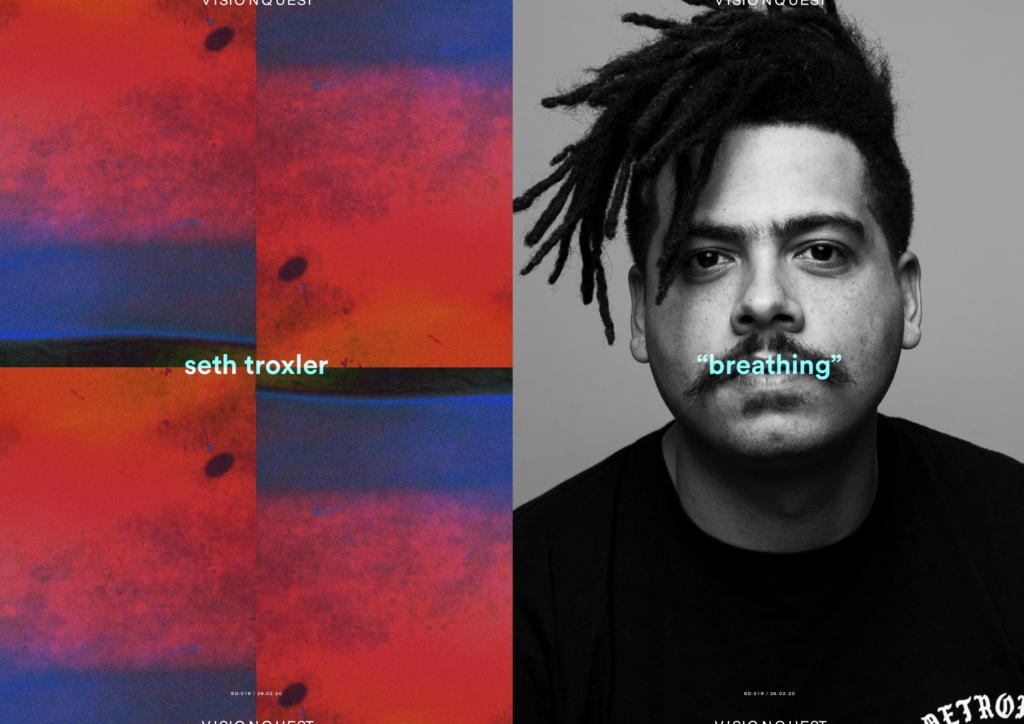
Whether they can offer something fresh in a musical landscape that has evolved so much since their early years is an interesting topic for debate. The skeptic would point to the sadness in any number of disappointing band reunions, and likely add that it’s not always easy to reach the same heights of yesterday, even more so with a maturing group whose success seemed so dependent on hedonism and an inherent lack of responsibility. Their original audience is also nearly a decade older meaning the Visionquest crew will not be at liberty to rely on the fans of old.
“We take our music really seriously but we don’t take ourselves too seriously. When we catch each other taking ourselves too seriously, we call each other out on it and that’s helped us to create this perpetual state of adolescence,” Curtiss says. “We were some precocious motherfuckers back then, and while that spirit is still there, it will be channeled towards music. If you can imagine replacing the excessive partying with some professionalism, then you end up in a good spot.”
The consensus is that something happens when all four play together; that the party is more memorable, and the music better because of the friendships that underpins their relationships. “It’s like a journey through the history of this music, from disco until now, and we do it best when we come together. Plus we’ve each evolved in our separate ways, and so it will be a new combination of what we’ve each picked up individually,” Reeves explains.
Beyond the celebration that it represents, the 10-Year tour aims to highlight the wider collective, and this will be the first step to a much grander vision that sees Visionquest remembered for something much more than another DJ act. “The end goal is much more than a DJ gang,” Reeves continues. “We want to push it for the reasons we started it in the first place. It wasn’t possible then, but now it can exist as we always intended it to.”
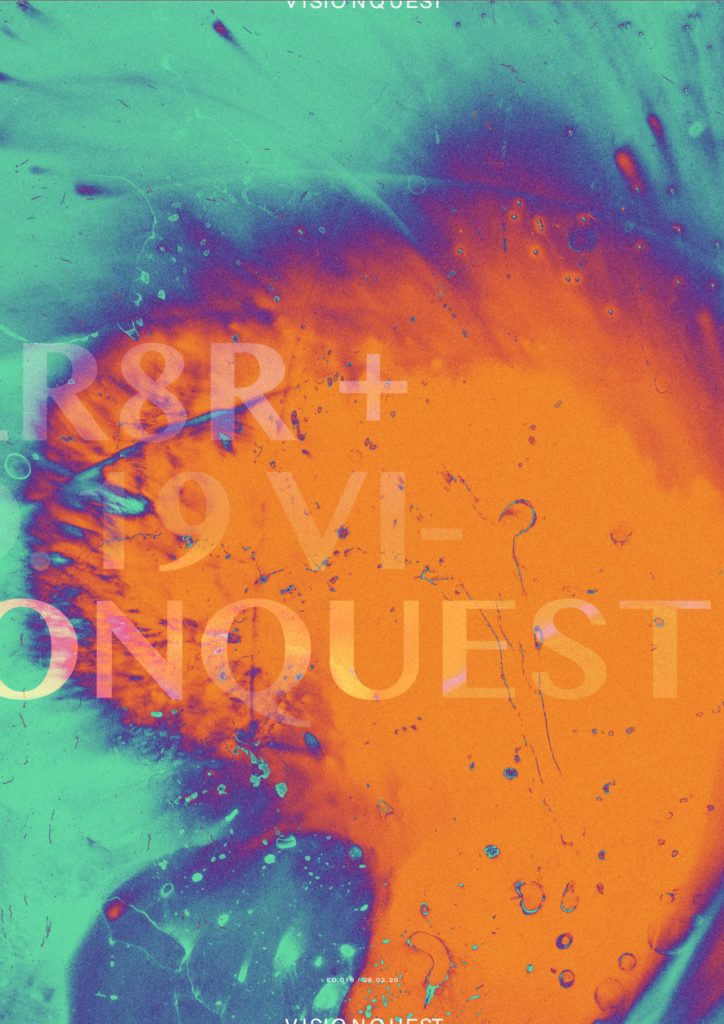
Support Independent Media
Music, in-depth features, artist content (sample packs, project files, mix downloads), news, and art, for only $3.99/month.

